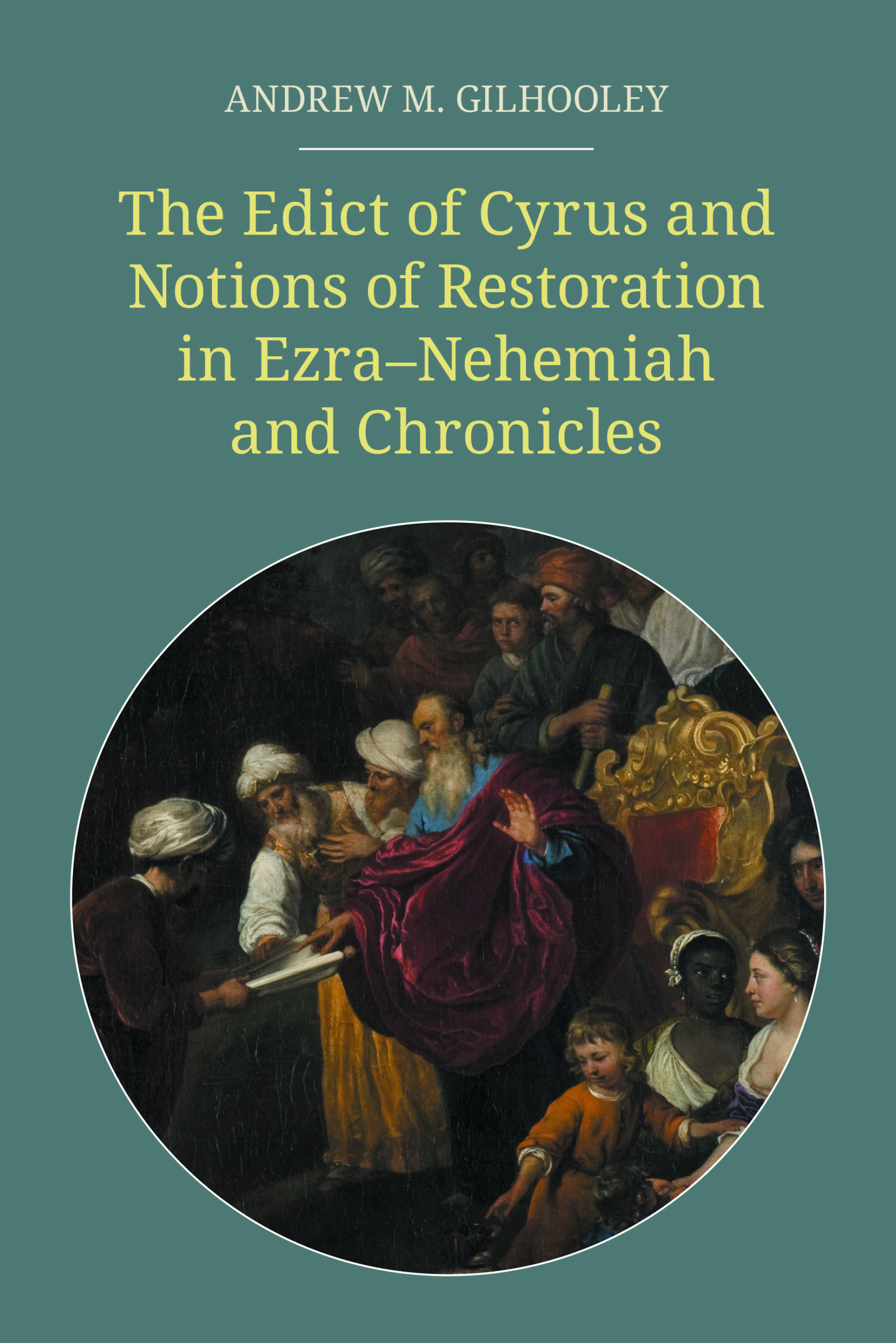The Edict of Cyrus and Notions of Restoration in Ezra-Nehemiah and Chronicles
£50.00
The Edict of Cyrus, both opening Ezra-Nehemiah (Ezra 1:1-4) and closing Chronicles (2 Chron. 36:22-23), serves a different role in each book. In Ezra —Nehemiah, it is a command resulting in a restoration event that has failed, whereas in Chronicles it is a command anticipating a successful future restoration event.
The Edict of Cyrus, both opening Ezra-Nehemiah (Ezra 1:1-4) and closing Chronicles (2 Chron. 36:22-23), serves a different role in each book. In Ezra —Nehemiah, it is a command resulting in a restoration event that has failed, whereas in Chronicles it is a command anticipating a successful future restoration event. In the context of canon, these different uses of the edict are theologically significant, especially in formulating ideas of hope for the future in Chronicles.
While Chronicles is aware that a historical restoration transpired sometime in the past (1 Chron. 3:19-24; 9:2-44), it shares the sentiment of Ezra —Nehemiah, that the return was something of a failure. Through compositional analysis, Gilhooley argues that the edict closing Chronicles portrays the true, or rather, complete restoration not as a past event to be reflected upon but rather one to be anticipated sometime in the future —at a time when Israel was expected to see the establishment of a new glorified temple, political independence, release from servitude, and the blessings of new creation and of new cultic order.
Reading Chronicles as the last book of the Old Testament in accordance with various Jewish witnesses, we find that the edict is transformed into a programmatic conclusion to the canon. Accordingly, the eschatological return to Zion and reconstruction of the temple appear to be dominating concerns of the canonical editors. These verses that bring to an end both Chronicles and the Old Testament as a whole may also be read in dialogue with canon-conscious structural markers elsewhere and, therefore, could be formative in constructing a canonical theology.
Additional information
| table of contents | INTRODUCTION PRELIMINARY CONSIDERATIONS A. Approaching the Text 1. Diachronically Reflected Synchrony 2. Criticism of Previous Methods 3. Canonical Critical Approach 4. Conclusions B. Parallel Edicts 1. The Issue 2. Unprecedented Use of ויעל 3. Variant Readings 4. Conclusions C. Concluding Remarks THE EDICT OF CYRUS AS A COMPOSITIONAL INTRODUCTION A. Approaching Ezra–Nehemiah 1. Introductory Comments 2. Schematization of Story 3. Unity of the Movements 4. Conclusions B. Realized Restoration 1. Lexical Parallels 2. Plundering Motif 3. A New Moses 4. Conclusions C. Continuation of Exile and Bondage 1. Insignificant Temple 2. Relationship to Foreigners 3. Unfaithfulness to Torah 4. Conclusions D. Concluding Remarks THE EDICT OF CYRUS AS A COMPOSITIONAL CONCLUSION A. Compositional Tension 1. Issues with the Genealogies 2. 1 Chronicles 3.19-24 3. 1 Chronicles 9.2-44 4. Conclusions B. Con-textual Tension 1. 2 Chronicles 36.22-23 as a Fitting Conclusion 2. Literary Directive (Previous Suggestions) 3. Incomplete Summative History 4. Davidic Covenant and Hope for the Future 5. Conclusions C. Significance of ויעל as the Last Word 1. Previous Suggestions 2. Hope of a New Exodus 3. Unfulfilled Execution of Command 4. Conclusions D. Concluding Remarks THE EDICT OF CYRUS AS A CANONICAL CONCLUSION A. Compilational Intentions of the Canonical Editors 1. The Issue of Unity 2. Canonical Sequence 3. Identifying Intentionality of Sequence 4. Conclusions B. Chronicles in the Canonical Orderings 1. Medieval Jewish Manuscripts 2. New Testament Witnesses 3. Ben Sira’s List of Heroes 4. Conclusions C. Programmatic Conclusion 1. Transformation of the Edict 2. Genesis and Chronicles as Intentional Canonical Bookends 3. Cyrus the Forerunner 4. Conclusions D. Concluding Remarks |
|---|


Reviews
There are no reviews yet.